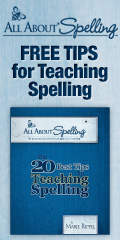The following is a post by Kirsten Joy Torrado.
Part of our natural rhythm during the mid-winter months is to assess where we are at in terms of our curriculum and evaluate our approach to learning.
We usually forsake bookwork during the holidays in favor of family activities and this short break allows me the mental space that I need to reflect on what’s working and what’s not working in our homeschool, make adjustments where necessary, and plan for the year ahead.
Here are a few questions that help me to evaluate the effectiveness of our learning.

Is it interesting and fun?
Keeping our learning fresh and our motivation in tact is so important. Much of what we do is project based, but even that can feel like drudgery if we are simply covering content and not really curious about the topic at hand.
Sometimes we just need a change of subject or a change of scenery. I tend to veer towards historical topics for our unit studies so, choosing a short week on one of the boys’ chosen interests or a different subject area entirely (like art, music, or science) is usually enough to keep things exciting. I try to keep our unit studies to no more than two weeks in length.
When children are young it’s really hard to sustain attention on any single topic for longer periods of time. Curiosity is usually rambling and changes frequently. But, I also seek variety for my own benefit as well. As the teacher, if I have to spend longer than two weeks on any particular subject matter, I also start to feel a little claustrophobic from the requirement of a curriculum rather than a genuine desire to know.
I’ve found that a two week time period is usually enough to exhaust both mom and kids interest on any particular area of study.
Are we going places?
I like to taking full advantage of what is available to us both seasonally and regionally for going on field trips, and in this part of Pennsylvania there’s lots to do.
Am I incorporating quality literature?
Read alouds are a huge part of our curriculum. There’s so much that can be said about the benefits of reading aloud to your children (“The Read-Aloud Handbook” by Jim Trelease reviews just a few of them) from increasing your child’s understanding of the world and mental acuity, to imparting values and building character.
So much can be gained from a good story.
Having a good book on hand also helps to fill in long winter hours when we are all indoors and the weather is cold. I usually keep whatever read aloud we’re working our way through right on an end table in the family room so we can pick it up and keep on going whenever boredom hits and the kids are finding it hard to find something to do.
Are skills being taught naturally through the topic at hand?
This year we’ve taken a diversion from the spiral approach (drill and repeat method) and most other standards-based curriculum in favor of teaching skills naturally through real books, real writing, and real life.
This means most of our grammar and spelling lessons occur naturally through our copywork and dictation. Vocabulary is acquired naturally through the course of reading good books. And math concepts are taught in hands on ways and remain relevant to what a child needs to know and use in his everyday life.
If I find myself pushing my child beyond the skill that they currently need in their life (or are capable of practicing) I usually feel the immediate resistance and know that it’s time to back away and just let them find their own pace. Skills of reading, writing, and arithmetic can be taught naturally within the context of passionate pursuits and anything else is just performance based living.
I refuse to push my children to perform to the outcome especially at the cost of real learning.
Am I taking full advantage of the materials and supplies that I already have within my resource?
When planning our studies I like to start first with what’s on the shelf, what can be borrowed, or what can be downloaded online. This really helps to keep me from making unnecessary purchases, keeps the budget on track, and avoids the clutter of materials that I may never use.
Inevitably, it always surprises me to see what resources we already have within our own home when I simply take the time look.
Latest posts by Free Homeschool Deals (see all)
- Saxon Math 3 Resources - March 31, 2025
- Wonderings eZine - February 27, 2025
- All About Me Coloring Page Bundle - February 24, 2025
- FREE Valentine’s Day Printables, STEM Activities, & Experiments! - February 4, 2025
- Top 10 STEM/STEAM Activities for the Winter Months! - December 2, 2024





